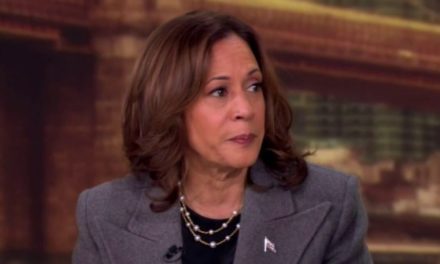In recent weeks, the spotlight has turned towards President Joe Biden’s cognitive health, stirring a national conversation around the mental fitness of a leader at the forefront of significant issues. Reports and testimonies have emerged, raising concerns about Biden’s cognitive abilities and capacity to fulfill the demands of the presidency. As these revelations come to light, his late-night allies, who once defended him fervently, appear to have become noticeably quiet, leading to questions about his leadership and trustworthiness.
The issue of cognitive decline among world leaders is not new, as age-related health concerns can influence political climates. Biden, who is currently the oldest sitting president in American history at 81 years old, has faced scrutiny related to his age and mental acuity since he entered the Oval Office. However, recent events have brought these concerns to the forefront again, leaving his supporters on the late-night airwaves surprisingly muted.
During his presidency, comedians and late-night talk show hosts have rallied around Biden, frequently using their platforms to dismiss concerns about his cognitive health — often framing such criticisms as partisan attacks. Shows like “The Tonight Show” and “Late Night with Seth Meyers” have been known to poke fun at former President Donald Trump’s mental fitness while defending Biden’s capabilities. Yet, as reports alleging cognitive decline have become more frequent and detailed, Biden’s defenders seem to have retreated somewhat, creating an alarming silence around the issue.
One of the most notable revelations was a recent study that reviewed Biden’s public appearances, assessing his speech patterns, coherence, and ability to respond to questions. This analysis pointed out several moments where Biden appeared confused or struggled to articulate his thoughts clearly. Such moments do not only raise eyebrows but also spotlight the fact that the pressures of the presidency demand a sharp mind and quick thinking.
The implications of this cognitive decline are vast, from the potential impact on policy-making to the way public perception can shift based on a leader’s ability to communicate effectively. As Biden embarks on significant legislative battles, including issues like climate change, healthcare reform, and foreign relations, the doubt surrounding his cognitive faculties could hamper his effectiveness in rallying support and leading the nation.
Moreover, opposition voices are eager to explore this narrative, aiming to paint Biden’s cognitive health as a liability. Republican politicians and commentators have seized opportunities to question Biden’s fitness to serve, suggesting he may not be fully capable of handling the rigorous demands of the presidency. The politicization of these cognitive decline revelations complicates the narrative. While concerns about his mental health are genuine, they must be distinguished from a political agenda aimed at undermining his administration.
The lull in support from Biden’s late-night allies suggests an awareness of the delicate nature of these discussions. While comedic platforms are typically spaces for light-hearted critique and satire, turning a blind eye to legitimate concerns about cognitive health might backfire. Dismissing such worries could strain the credibility of these programs and could lead to a diminished audience trust when they aim to tackle serious political matters.
Critics of Biden have also highlighted specific instances where they believe his cognitive decline has had tangible negative consequences. For instance, his responses during press briefings have been scrutinized, with particular focus on moments when he seemed unsure of the information he was providing. These instances are being used as evidence to claim that his mental capacity is diminishing, fostering a sense of urgency among voters to consider the implications of his potential inability to govern effectively.
The question on many minds is, can a president with observable cognitive declines effectively lead the United States through its myriad challenges? Some analysts suggest that public perception will play a significant role in determining whether Biden retains voter confidence heading into the next election season. The 2024 presidential race is shaping up to be contentious, and how closely the electorate engages with the president’s cognitive health may heavily influence outcomes.
Democratic strategists are now faced with a formidable task — to address and counter wafting concerns while maintaining their base’s confidence in Biden. Fortunately for the party, historical precedence shows that leaders have overcome alleged cognitive roadblocks with vigorous campaigning and solid policy foundations. However, this also requires Biden to be proactive, addressing these health concerns directly rather than dancing around them, which might otherwise lead to speculation, rumors, and misinformation.
Transparency is crucial. If Biden’s administration can effectively communicate proactive measures regarding the president’s health — perhaps via regular health assessments or updates — it may help dispel some fears regarding his cognitive well-being. The public has a right to know the condition of its leader, and such transparency could potentially assuage growing fears, even as discussions about his cognitive state evolve.
Meanwhile, the press has a critical role to play. Journalists must navigate the fine line between reporting on cognitive health issues without crossing into sensationalism or unfounded narratives. Also, an emphasis on straightforward, fact-based reporting can aid the public in making informed opinions around Biden’s fitness for leadership without succumbing to the biases of political discourse.
Ultimately, Biden’s ability to garner the support he needs from his allies rests heavily on the way he tackles the issue of cognitive decline — both publicly and privately. How he chooses to overcome this credibility crisis might shape not just his own legacy, but also the fabric of the Democratic Party as it gears up for a consequential electoral season.
As the nation watches and waits, it remains to be seen whether Biden’s allies will eventually break their silence and rally once again in support of the standing president or if the political landscape will continue to shift beneath him, influenced by the ongoing debate about cognition, age, and capacity to lead.
The ramifications of these revelations are far-reaching, extending beyond Biden himself as they touch on broader topics of ageism in politics, health care policy, and the expectations placed on leaders. As the nation enters a period marked by uncertainty and change, the conversation surrounding cognitive health in leadership will be pivotal in shaping not just the next election, but the future of political discourse in America.
































